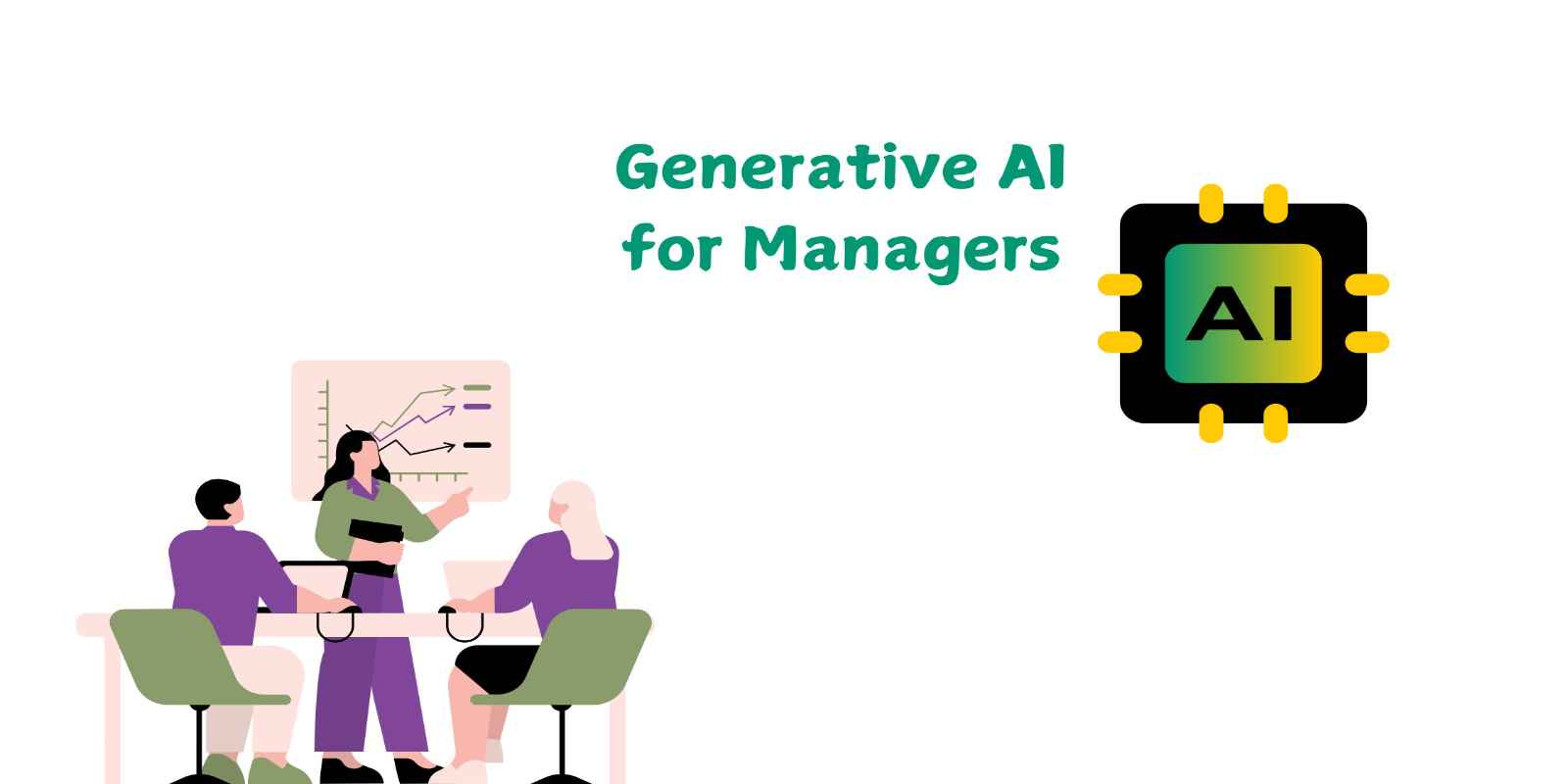
Generative AI is revolutionizing how managers streamline tasks, optimize strategies, and drive organizational success. From enhancing employee management to improving customer relations, its applications are diverse and powerful. This blog explores how managers can leverage Generative AI in various domains, from problem-solving to innovation and financial planning.
Key Applications of Generative AI for Managers
- Employee Management
- Draft performance reviews efficiently.
- Create recognition messages for employee achievements.
- Generate onboarding guides and training checklists.
- Develop tailored training content outlines.
- Offer conflict resolution strategies.
- Data Analysis
- Explain complex data analysis techniques.
- Provide spreadsheet formula guidance.
- Suggest tools for data visualization.
- Highlight critical data insights.
- Provide templates for analytical reporting.
- Communication
- Guide managers on effective feedback delivery.
- Suggest strategies for impactful meetings.
- Generate clear and concise presentation outlines.
- Provide tips for impactful communication.
- Offer negotiation strategies for business discussions.
- Tools
- Recommend software to improve operational efficiency.
- Provide tutorials for utilizing management software.
- Offer cybersecurity advice.
- Guide in integrating emerging technologies.
- Suggest mobile apps to enhance productivity.
- Problem-Solving
- Offer frameworks for structured decision-making.
- Propose strategies for conflict resolution.
- Suggest prioritization techniques for tasks.
- Assist in analyzing and resolving problems.
- Provide methods for effective brainstorming.
- Project Management
- Generate comprehensive project plans.
- Offer strategies for effective project execution.
- Recommend tools for seamless task management.
- Suggest resource management strategies.
- Provide tips on setting realistic timelines.
- Strategic Planning
- Assist in drafting mission statements and organizational objectives.
- Offer SWOT analysis guidance.
- Help define business goals and objectives.
- Provide tools for industry analysis.
- Suggest strategies to achieve long-term plans.
- Financial Oversight
- Suggest templates for budgeting.
- Provide insights into financial forecasting.
- Guide on managing cash flow efficiently.
- Offer advice on cost-reduction strategies.
- Present ideas for financial performance metrics.
- Customer Relations
- Draft templates for collecting customer feedback.
- Offer strategies for client retention.
- Suggest tactics for customer communication.
- Provide guidance on managing customer expectations.
- Share tips for resolving customer complaints effectively.
- Innovation and Improvement
- Provide case studies of industry innovations.
- Suggest tools to track progress and improvement.
- Offer advice on fostering an innovative culture.
- Guide managers in evaluating new ideas.
- Recommend strategies for scaling operations.
Also Read: Will AI Replace Project Managers? Best AI Tools for Project Management
Conclusion
Generative AI empowers managers by transforming complex tasks into simpler, more efficient processes. From optimizing team performance to driving customer satisfaction, its role is indispensable in modern management. By embracing AI-powered solutions, managers can enhance productivity, innovation, and overall business outcomes.


